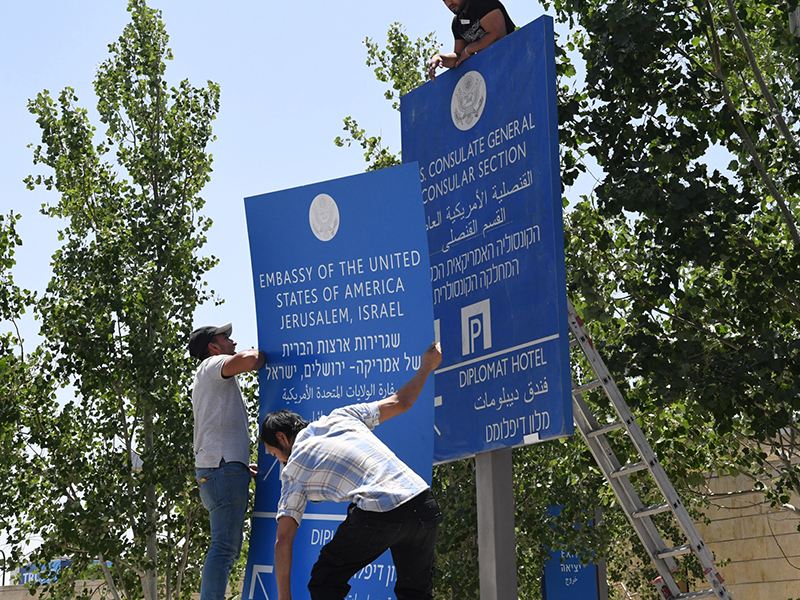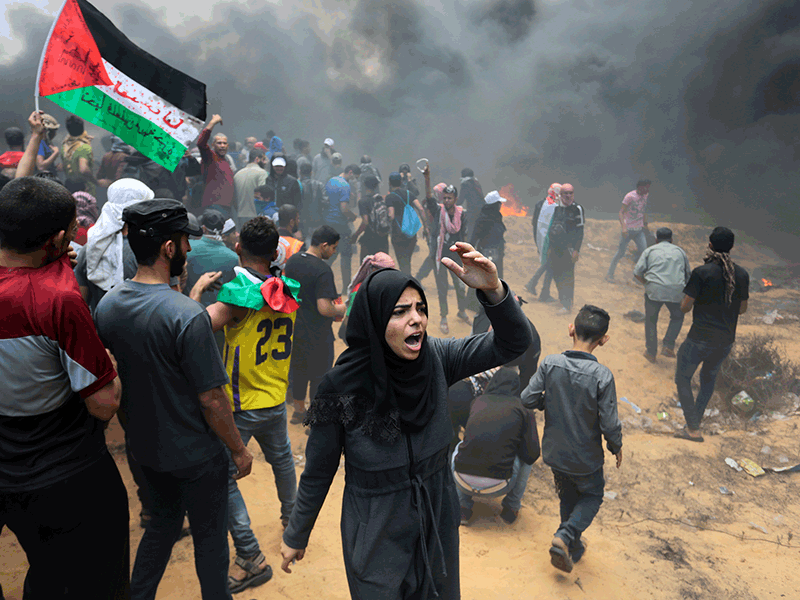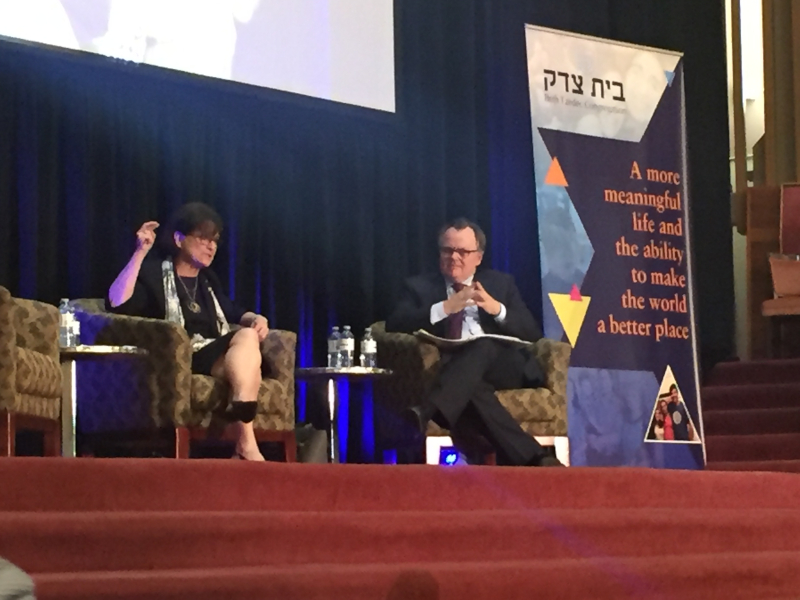Canada’s ambassador to Israel unequivocally ruled out any plans to move this country’s embassy to Jerusalem, unless it’s part of a larger peace deal with the Palestinians.
Ambassador Deborah Lyons confirmed that Canada will not follow U.S. President Donald Trump’s recent decision to move the American embassy to Israel’s capital, while speaking at a panel discussion at Beth Tzedec Congregation in Toronto on May 31.
“It would be part of a larger peace process, and a larger context, when the (Israelis and Palestinians) come together,” she said to a mixture of boos and applause from the audience.
She said that President Trump’s embassy move will harm the peace process and claimed that a similar gesture from Canada would further inflame tensions in the region.
READ: DID CANADA SNUB THE OPENING OF THE U.S. EMBASSY IN JERUSALEM?
When Trump announced the embassy move, “I saw the momentum and the excitement of the peace process fall away very quickly,” she said.
Rather than focus on the embassy move, which she said only caused Palestinian leaders to walk away from peace talks, Canada, and the West, should be focused on bringing them closer to Israel’s leaders.
“Let’s see if we can get (Palestinian President Mahmoud) Abbas and the Palestinians back to the table,” she later urged. “Palestinians need to be given the opportunity to demonstrate that they can elect the government they need to guide their future.”
She also defended the Canadian government’s response to the violent protests at the Gaza-Israel border, which failed to initially mention Hamas as being responsible for instigating and fuelling the riots.

The word Hamas “not used, but that was the implication,” she said as boos rang out from the crowd.
She also noted the Canadian government’s initial concern that Israel used excessive force, in its attempt to quell the unrest.
“There were concerns about excessive use of force,” she said. “That referred to the Canadian doctor who was injured, but also the totality of the March of Return, where about 12,000 were wounded – 25 per cent by live ammunition.”
Also speaking at the event was Marc-Andre Blanchard, Canada’s representative to the UN.

Blanchard, a self-professed proponent of the UN, first acknowledged that many in audience take issue with the world body’s anti-Israel bias. But he insisted that despite the maelstrom of criticism levied at the organization’s agencies, including the Security Council and the United Nations Relief and Work Agency for Palestinians (UNRWA), the UN is “the only place the world can be convened in this way.”
He defended Canada’s funding of UNRWA, which was halted under former prime minister Stephen Harper’s leadership, amidst a scandal in which the agency was accused of funnelling funds and supplies to projects linked with terrorist activities, and then reinstated by the current Liberal government.
Canada’s renewed oversight and monitoring of UNRWA “is the gold standard,” he said, which ensures that funds are properly allocated. “There are some incidents. And when they’re flagged to us, we act. We believe our agreement is a model.”
He acknowledged both the UN’s anti-Israel bias and its agencies’ links with recognized terrorist groups, but insisted the organization is a force for good in the world.

Quoting former UN secretary general Dag Hammarskjold, Blanchard said the “UN was not created to bring us to heaven, but to save us from hell.”
Blanchard passionately defended Canada’s voting record at the UN, insisting that the government’s ongoing campaign to gain a seat on the Security Council has not influenced his voting record.
“We will not accept any bargaining on our values or votes,” Blanchard said. “We’re running as Canada. This is important to us.”
Foreign Affairs Minister Chrystia Freeland was scheduled to join the panel, but rescinded amidst the ongoing fallout over President Trump’s decision to impose tariffs on some Canadian exports to the United States.
